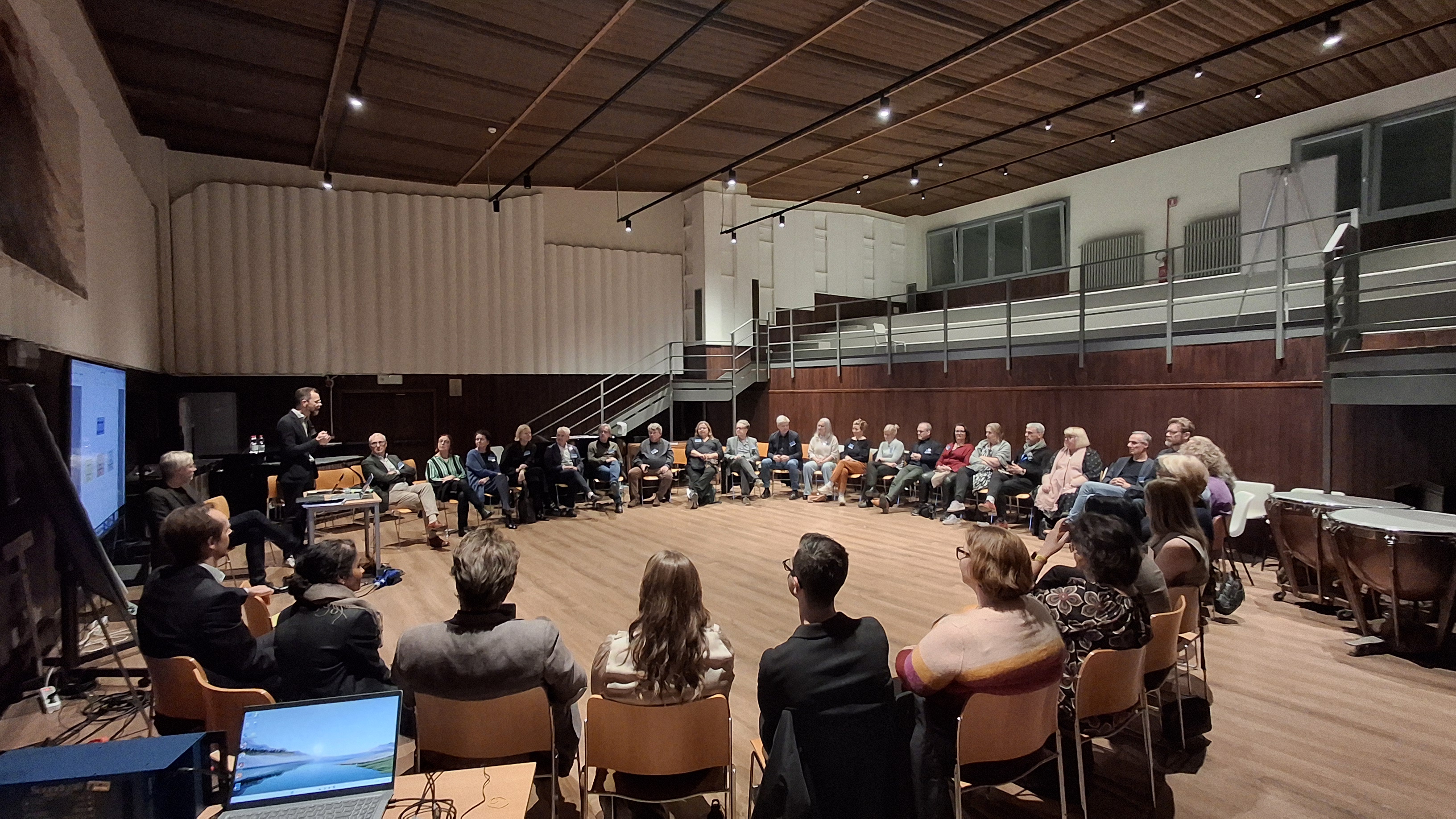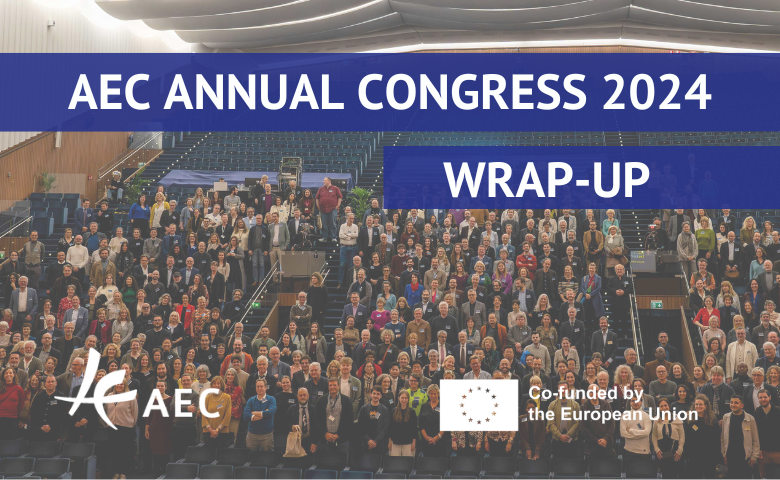The AEC Annual Congress and General Assembly 2024, held under the inspiring theme “In. In. In.: Innovation, Inclusion, and Interdisciplinarity – from Education to Employment and Society,” took place at the Conservatorio “G. Verdi” di Milano, Italy, from 13 to 16 November 2024.
This year’s event welcomed nearly 500 in-person participants from across Europe and beyond, including around 60 students, marking yet another record-breaking milestone for the AEC community! The main sessions were also streamed online for remote participants.
Pre-Congress in-depth and hands-on workshops
Before the Congress officially began, a workshop on Peer Reviewer Training was held, delivered by MusiQuE Board members, staff, and experienced MusiQuE Peer Reviewers. This two-half-day workshop was designed for those interested in becoming Peer Reviewers or learning more about quality assurance and accreditation within conservatoires. The day was wrapped up with a concert by the Erasmus Orchestra.
Project Writing, Advocacy and Digitisation were the topics addressed during three parallel workshops on Thursday morning delivered by representatives of the ARTEMIS Working Groups and Opera Out of Opera 2 / Vietmus projects.
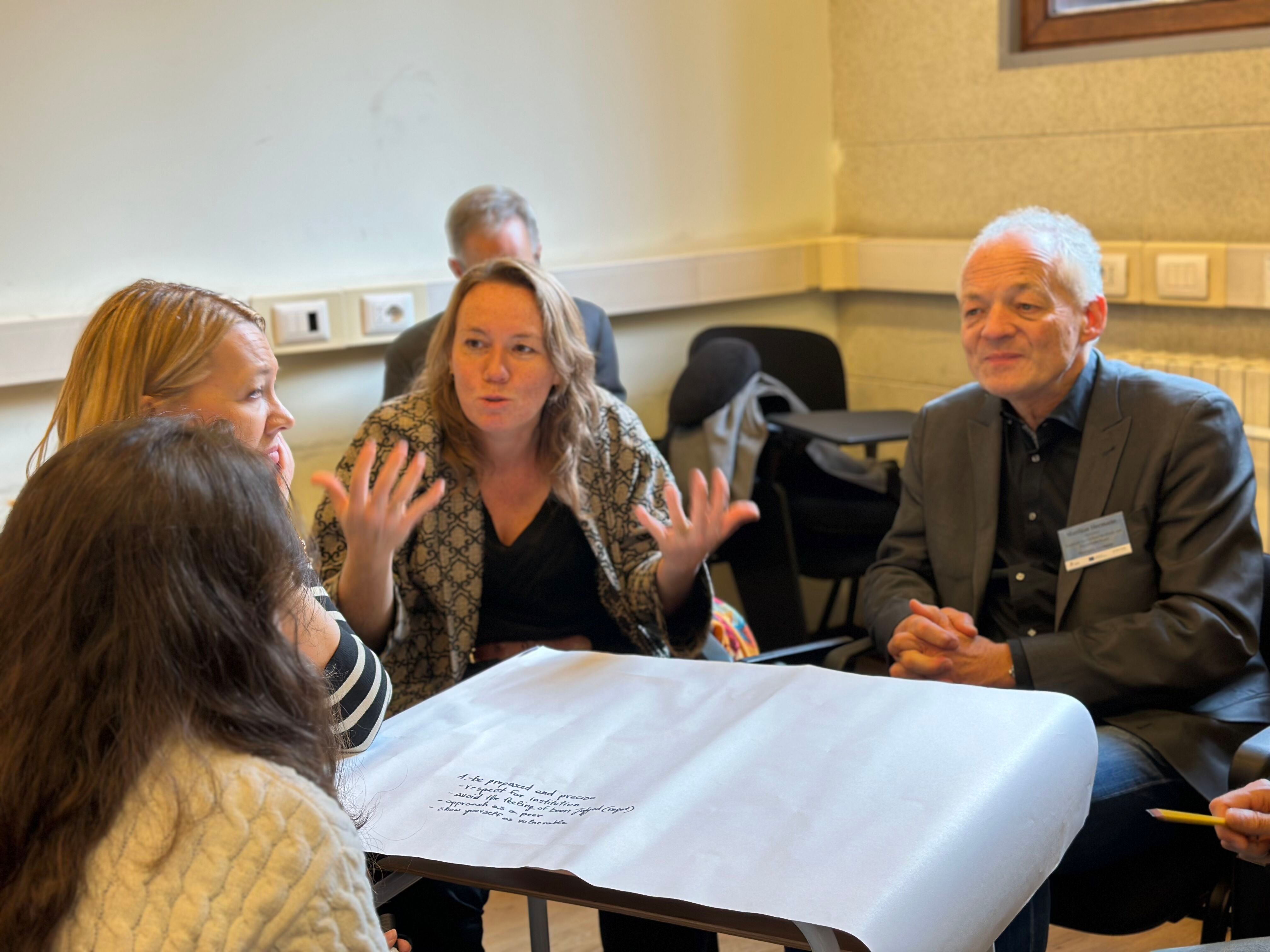
Congress kick-off sessions
Thursday afternoon marked the start of the Congress with an introductory guided tour of the Conservatorio “G. Verdi” in Milan. Established in 1807, this historical institution has been home to generations of prominent musicians. Taking a walk through its charming courtyards and corridors, participants came across hidden treasures, such as Giacomo Puccini’s graduate diploma!
Following the tour, students and newcomers were given a formal introduction to the AEC and its Annual Congress,, and an Opening Session with welcome words from the hosts in Milan, SEADOM, NASM, EPASA and AEC, set the stage for an exciting Congress ahead. The Opening Brainstorming Session followed, where participants explored various topics proposed by the attendees, such as AI, audience development, green thinking, power relations and many more.
The first day of the Congress wrapped up with a concert by the Orchestra Sinfonica del Conservatorio di Milano (OSCOM), under the baton of Pietro Mianiti. The performance included a contemporary piece by Francisco Pulpillo Chiclana and beloved Puccini arias, with remarkable soloists who truly touched our hearts.
Friday began with the Keynote, “A Vocation for Sharing,” by Filippo Del Corno, composer, artistic director, cultural manager, former student, and now full professor of composition at the Milan Conservatory. This was followed by three sets of six Parallel Sessions, each focusing on one aspect of the conference’s theme: Innovation for the first round, Inclusion for the second, and Interdisciplinarity for the third. Participants had the opportunity to choose three out of the eighteen sessions proposed.
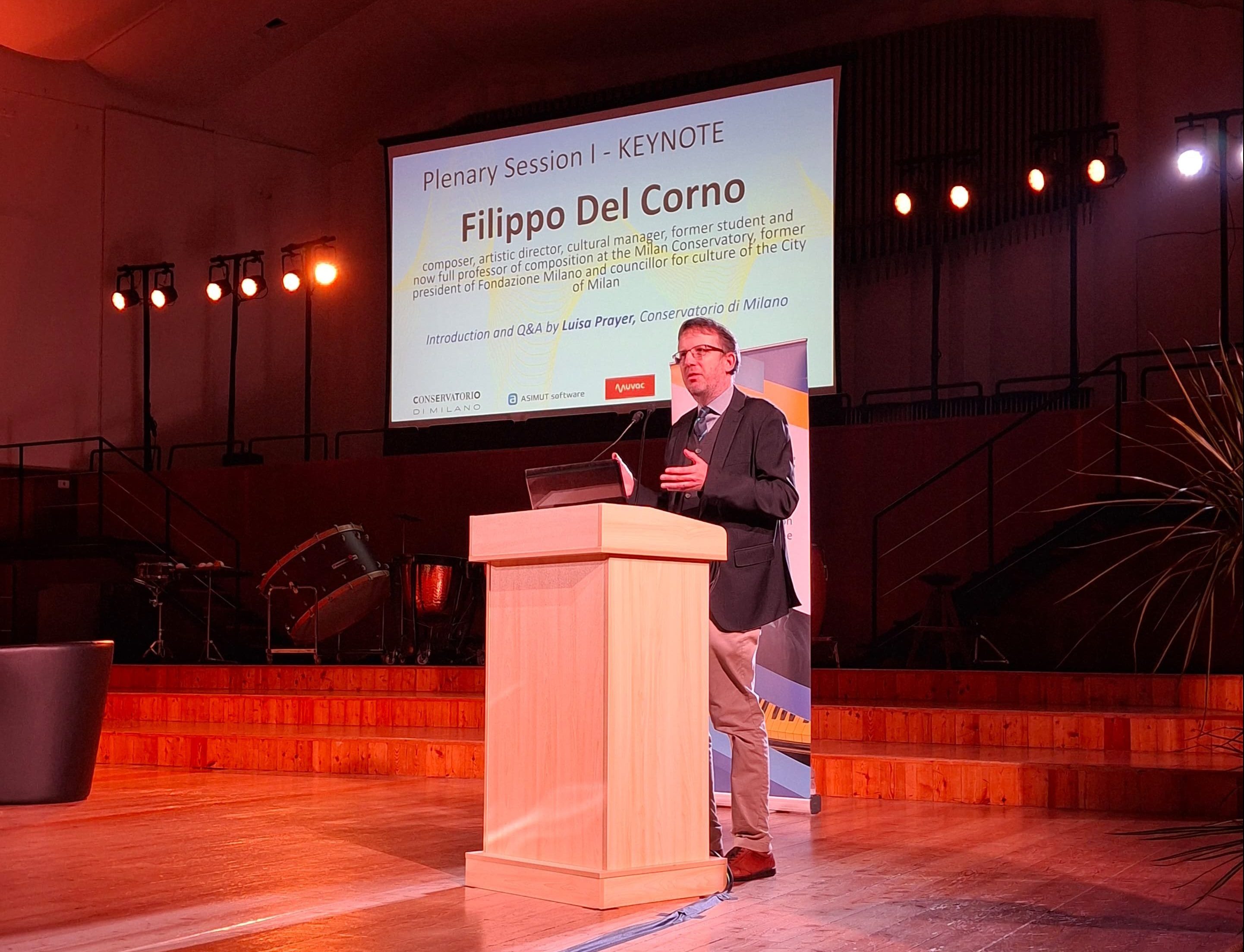
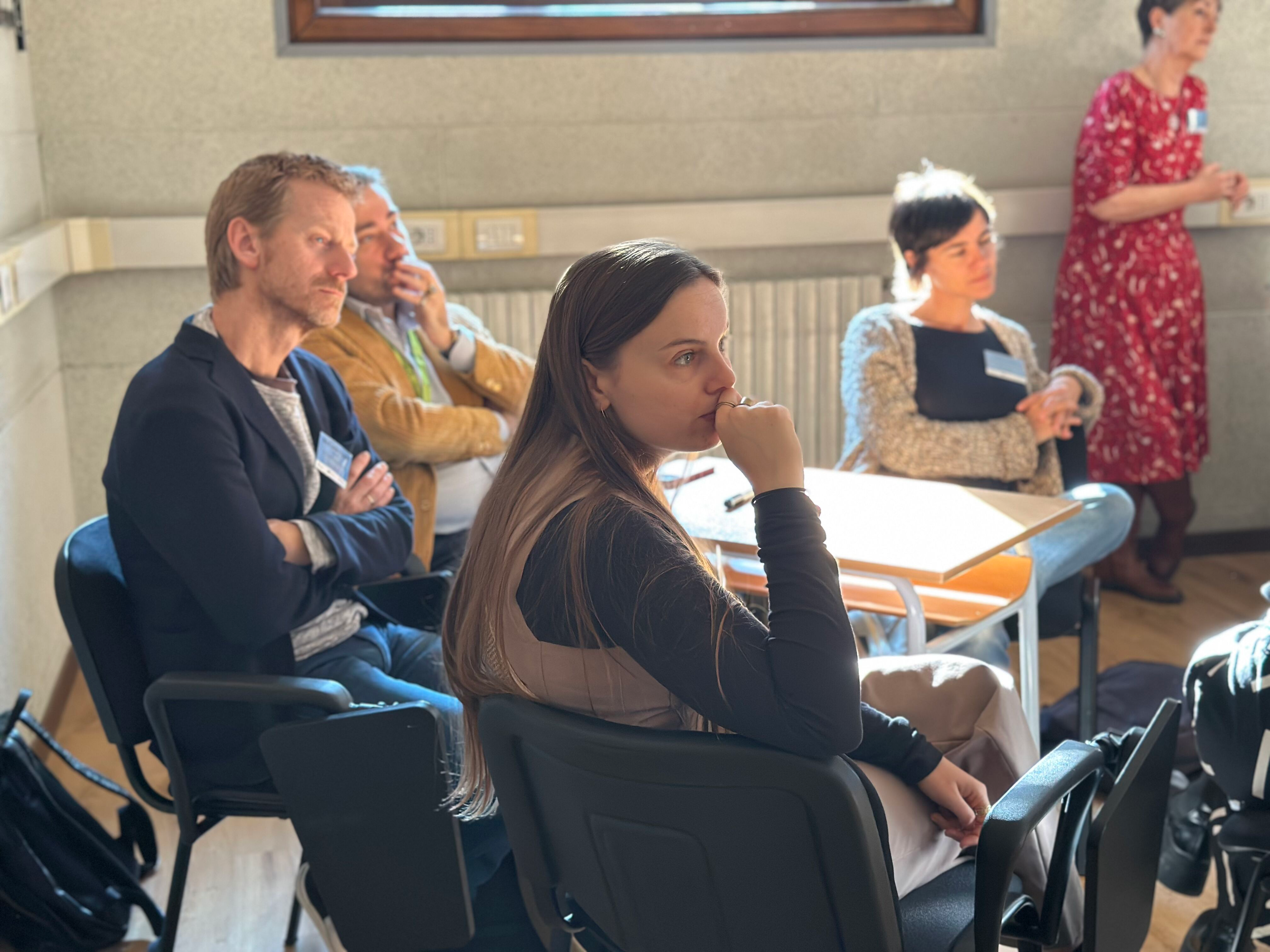
Parallel Sessions on Innovation, Inclusion and Interdisciplinarity
1) Parallel Sessions on Innovation
The Parallel Sessions on Innovation explored transformative approaches in higher music education institutions (HMEIs), addressing sustainability, digitalisation, and evolving educational needs. Topics included integrating the green shift through sustainable practices, reimagining curricula to meet contemporary artistic and societal demands, and leveraging artistic research, with a focus on innovative contributions from Italy. Sessions also delved into implementing digital advancements to reshape teaching and creative processes, equipping leaders with change management tools to navigate resistance, and fostering lifelong learning initiatives to cultivate curiosity and adaptability across all stages of professional and personal growth. These discussions highlighted the critical intersections of innovation, leadership, and resilience in shaping the future of HMEIs.
2) Parallel Sessions on Inclusion
The Parallel Sessions on Inclusion focused on fostering diversity, equity, and accessibility in higher music education institutions (HMEIs). Discussions examined the relationship between inclusion and artistic practice, addressing resistance in teaching and music-making, and explored power dynamics by implementing PRIhME’s guidelines, including the launch of the PRIhME book. Sessions highlighted strategies for supporting students with special education needs, translating global inclusion initiatives into local practices, and addressing the evolving role of conservatoires within their communities. Emphasis was also placed on engaging younger generations through innovative teacher education and vertical alignment, ensuring inclusive practices extend across educational and professional contexts. These sessions underscored the transformative potential of inclusive approaches in enriching artistic and educational landscapes.
3) Parallel Sessions on Interdisciplinarity
The Parallel Sessions on Interdisciplinarity highlighted the dynamic intersections between music, technology, heritage, and professional collaboration. Discussions showcased projects bridging education and professional performance, such as collaborative ventures and mentorship programs connecting emerging artists with industry professionals, particularly focusing on young female and non-binary composers and jazz students. Other topics included the role of new campuses in urban regeneration, the role that historical instruments and cutting-edge music technologies could play in modern music pedagogy, and the preservation and study of cultural heritage through innovative management of conservatoires’ libraries. Additionally, innovative initiatives like the HarmaHub project and the Performance Studies WG Project emphasised linking musical analysis with performance. These sessions demonstrated how interdisciplinary approaches can drive creativity and innovation in music education and beyond.
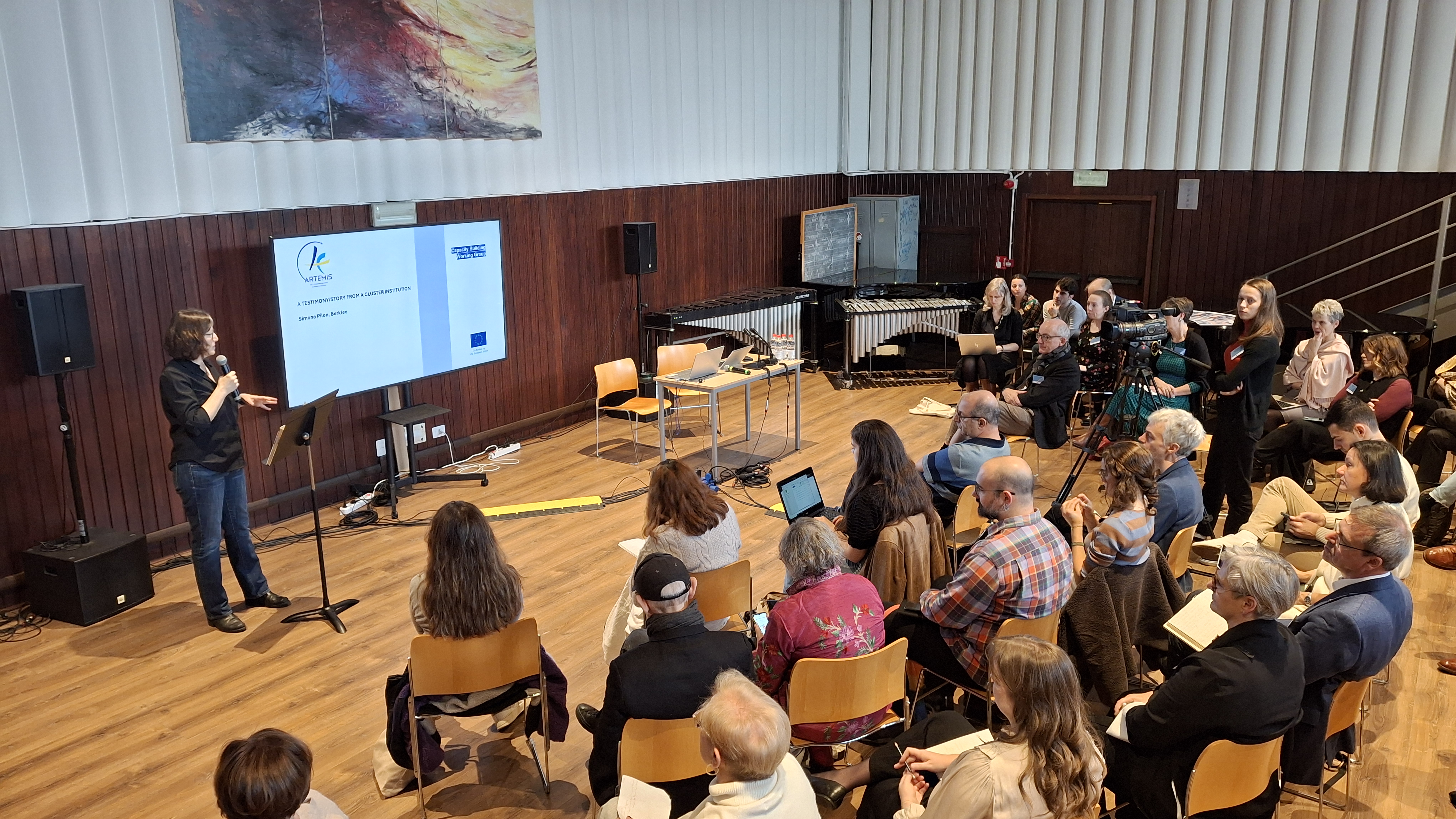
Celebrating ARTEMIS’s and MusiQuE’s Achievements
With some breaks for rest and networking between sessions, the intense Friday continued with a second Plenary Session, focusing on the ARTEMIS project’s final outcomes and future implementation. The session was moderated by Finn Schumacker and included members of the ARTEMIS Working Groups and the Chair of the Quality Assurance Committee.
The third and final Plenary Session, titled “Quality Enhancement and Quality Culture in Higher Music Education: Celebrating Achievements and Shaping the Future Together,” was presented by MusiQuE to celebrate its 10th anniversary.
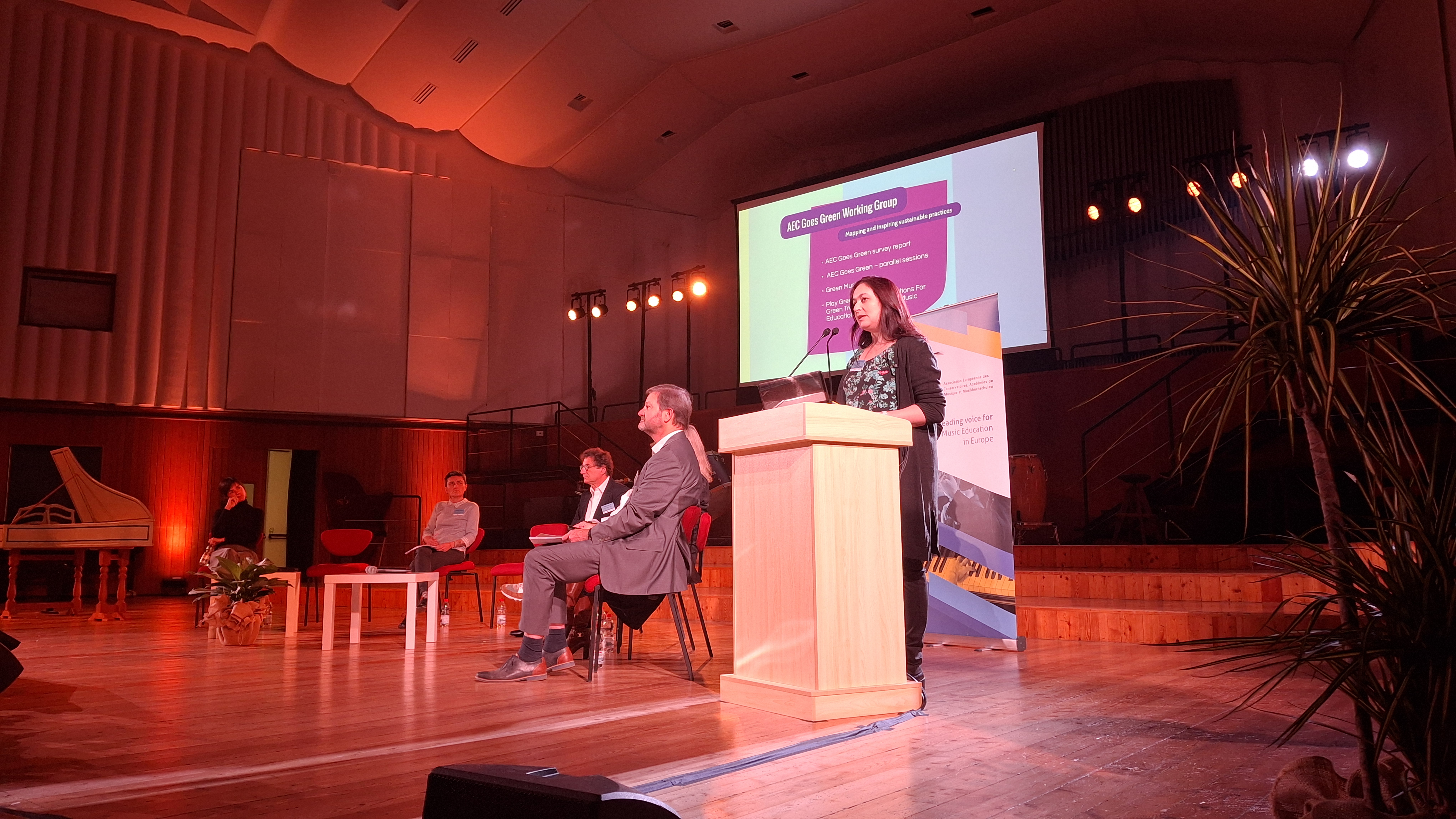
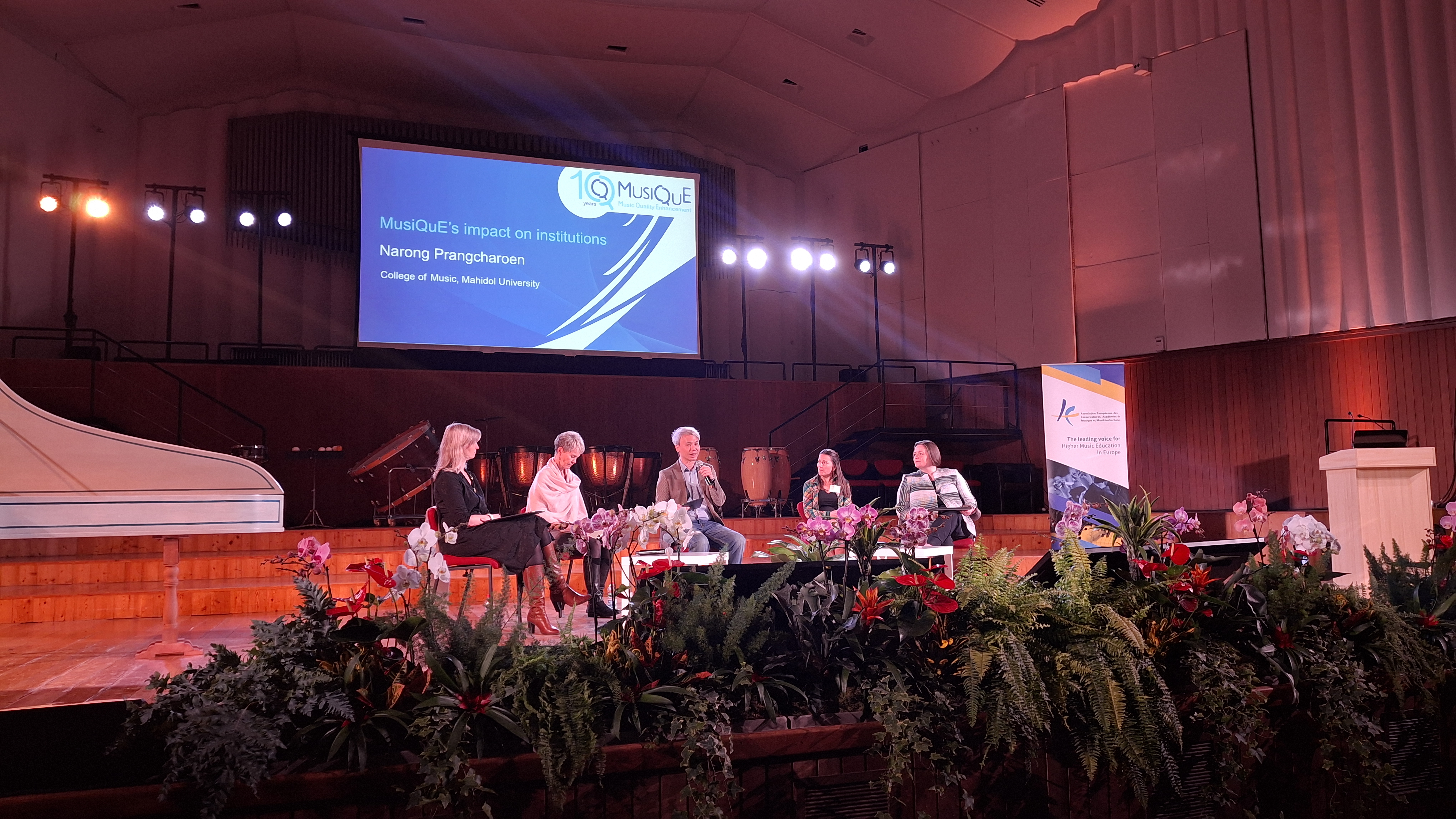
Participants’ opportunities to discuss, exchange and learn at the AEC Congress
The day concluded with the Regional Meetings. Divided into ten different groups based on their countries, participants had the chance to share their challenges and achievements, as well as learn from how other institutions are handling similar situations. Every year, this session is a highlight, and it’s no surprise—there’s always so much to discuss that time flies by faster than a speeding metronome!
The final day of the congress began with a workshop on Mindfulness, led by Maria Pia Ferdinandi (IncluMusic project), which offered participants a much-needed opportunity to unwind and recharge. Later, the participants gathered for the Information Forum, featuring brief presentations from AEC Member institutions, moderated by AEC president, Deborah Kelleher. This year, we had the pleasure of hearing from 34 initiatives, each sharing insights that attendees could further explore at the Information Market during informal talks with the presenters.
The morning concluded with Discussion Groups on the following topics:
- ARTEMIS Safe&Brave Space, by Non-Discriminatory and Gender Equality Task Force
- Fostering Synergies through Global Collaborations – workshop by SEADOM
- Advocacy: Large Agendas, Concrete Actions, by Finn Schumacker
- Exploring Student Representation in Conservatoires: Dialogue for Change, by EPASA
The day culminated with the Students’ Wrap-Up, hosted by EPASA, and the AEC General Assembly 2024, where key decisions were endorsed and the new council members were elected through a voting process by AEC active members. In the Closing Session, the AEC proudly announced the venue for the next Congress: Mozarteum University Salzburg (5-8 November 2025)!
In addition to these activities, our sponsors —ASIMUT Software, Nkoda, and MUVAC — provided valuable insights into their platforms through dedicated sessions.
This Congress edition was wrapped up with a visit to the Leonardo da Vinci Museum of Science and Technology, where the elegant Closing Dinner also took place.
The AEC would like to express its heartfelt gratitude to all members and partners who travelled to attend this event and to all the speakers, moderators, Congress Committee members, and ARTEMIS Working Group members who contributed to the success of this gathering.
A special thanks goes to the staff of the Conservatorio di Milano for being such gracious hosts, in particular to Andrea Burro for coordinating and ensuring the event ran smoothly on-site, and to the Conservatoire’’s students for their unwavering support: Adonis, Anita, Frank, Giorgia, and Stefano! Thank you and all the best for your future!
The AEC is looking forward to meeting you at the next AEC Congress and General Assembly in Salzburg on 5-8 November 2025 as well as other AEC events!
